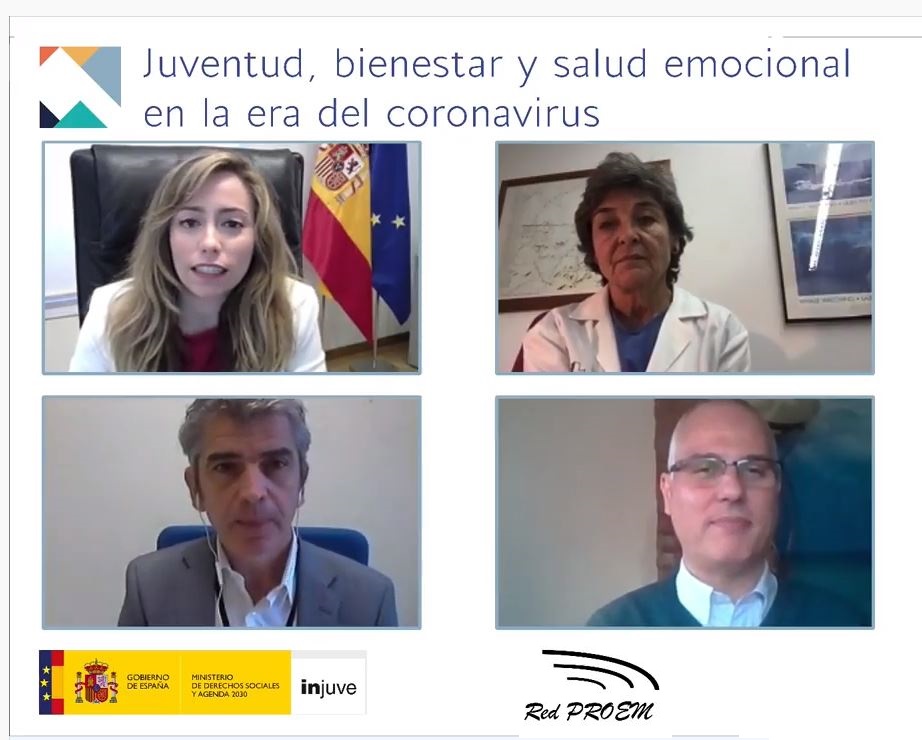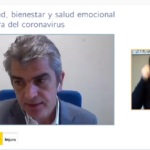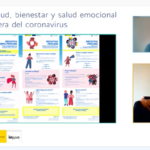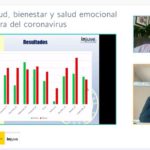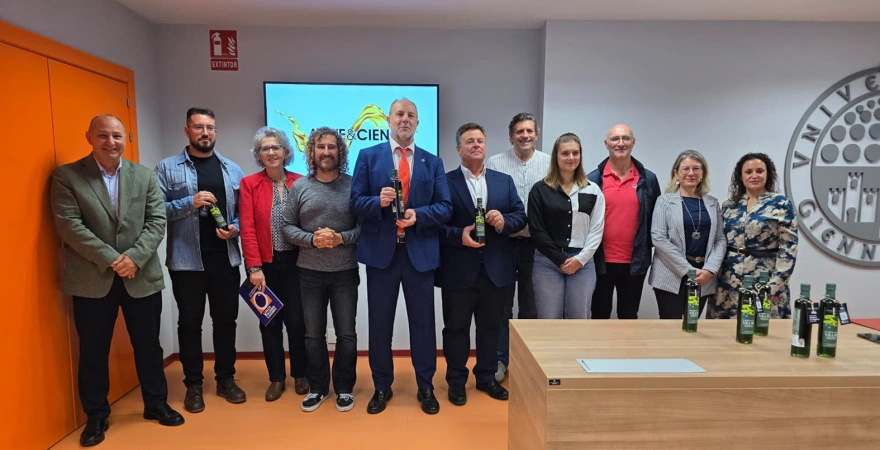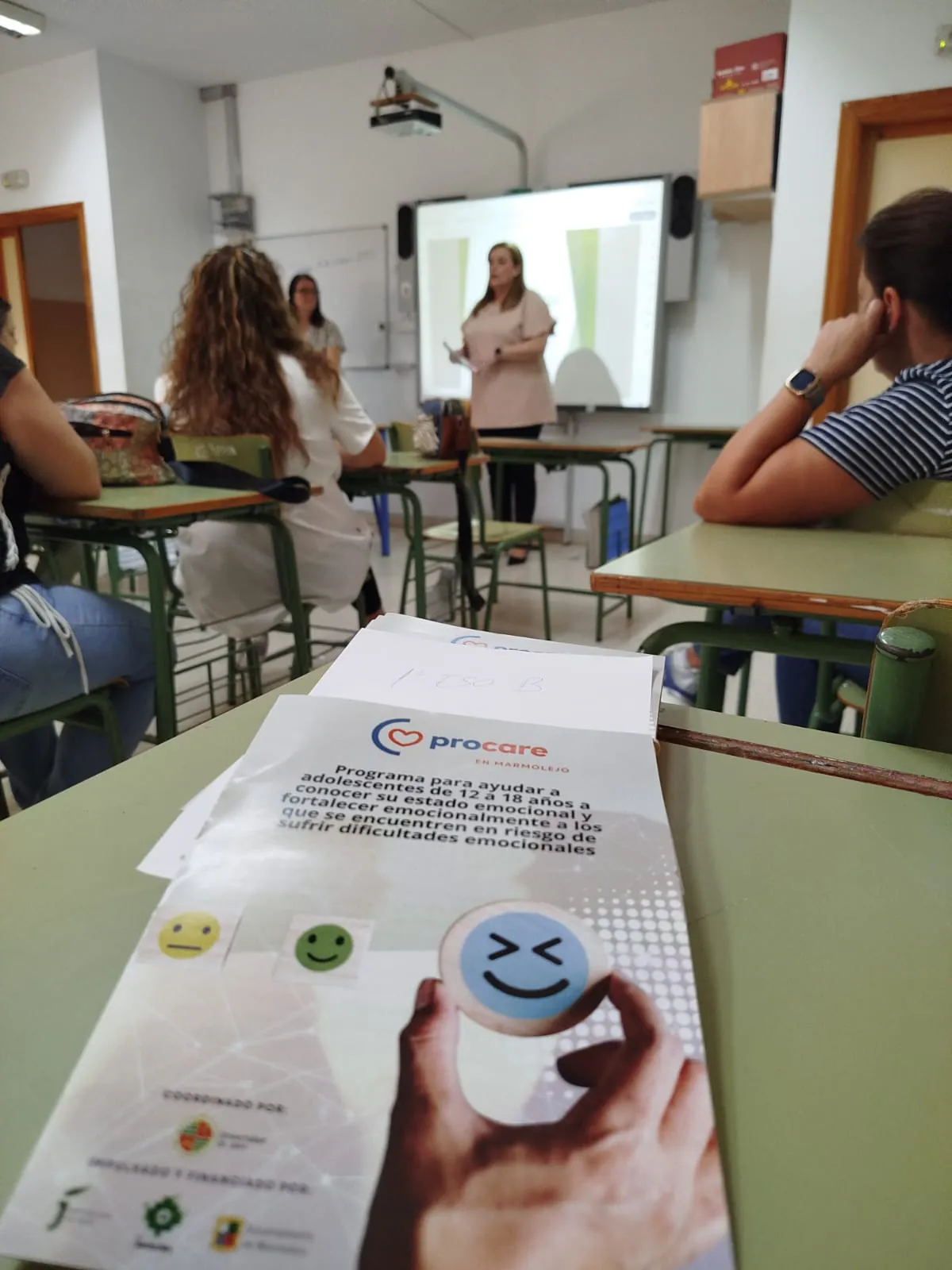Mental health experts and social agents warn of the massive increase in emotional problems and the need to invest in their prevention, detection and early intervention in young people.
The virtual conference organized by the Youth Institute of the Ministry of Social Rights and Agenda 2030, together with the PROEMA Network, led by the University of Jaén, presents experiences and tools to emotionally manage the impact of the COVID-19 pandemic on adolescents.
06/11/2020.- “Emotional problems, the new pandemic that is coming”. That is one of the main conclusions of the virtual conference ‘Youth, well-being and emotional health in the era of the coronavirus’, organized by the Youth Institute (INJUVE) of the Ministry of Social Rights and Agenda 2020 and the Network for the Promotion of Mental Health and Emotional Well-being in Adolescents (PROEMA Network), led by the University of Jaén.
At the opening of the conference, the professor of the University of Jaén (UJA) and head of the PROEMA Network, Luis Joaquín García, emphasized “the urgent need to invest in mental health given the risk of a massive increase in emotional problems in young people in the coming months due to the impact of the pandemic”. “It is crucial to help young people at risk of (or with) emotional problems to help them manage their emotions and prevent risky behaviors. They are not only our future, they are also our present. For this reason, the University of Jaén is leading two initiatives, DAREMOS and PROCARE, which offer a rapid emotional screening test, an emotional PCR and an emotional vaccine to provide young people with resilience and emotional strength,” he said.
For her part, María Teresa Pérez, director of INJUVE, defended the role of most young people during the pandemic and the “marginalization” they suffer lately in advertising campaigns and public messages. “The stigmatization of young people in the coronavirus is a very dangerous breeding ground,” she commented.
Meanwhile, Amparo Botejara, spokesperson for Health of the Grupo Unidas Podemos and promoter of the Mental Health Bill, stressed that we cannot forget that “the future is young people and we have to address it with our support for their mental health in this stage of uncertainty.” Following his intervention, Andrés Suárez, technical advisor of the Sub-Directorate General for Quality and Innovation of the Directorate General for Public Health, Quality and Innovation, stressed the “importance of strengthening the mental health system at the same level as the entire healthcare system due to the challenge that the pandemic is posing for the entire public health structure”.
Mireia Orgilés, professor at the Miguel Hernández University, then presented the monograph ‘Psychological impact of Covid-19 in children and adolescents’, which shows that the main effects detected in the infant and adolescent population are the fear of infecting themselves, infecting their family and loneliness. In turn, Lourdes Espinosa, professor of Psychology at the UJA and member of the PROEMA Network, presented the monograph ‘Promoting health and emotional well-being in adolescents: Current panorama, resources and proposals’, which includes, among other points, the need to teach mental health literacy and promote prevention in this area.
This was followed by a total of three round tables. In the first of these, Josefa Canals, Professor of Psychology at the Rovira i Virgili University and member of the PROEMA Network, reflected on the stigmatization suffered by young people during the pandemic. Meanwhile, the professor of the Miguel Hernández University and member of the PROEMA Network, José Antonio Piqueras, specified that “a high percentage of young people are good citizens, they are a risk factor but they also have strengths that need to be strengthened”. Finally, Enrique Vargas, president of the Spanish Association for Mutual Help against Social Phobia and Anxiety Disorders (AMTAES), reviewed the main impacts of confinement on people with anxiety disorders, such as the reinforcement of social isolation or the fear of contagion.
In the second of the round tables, the president of the Confederation of Organizations of Psychopedagogy and Guidance in Spain (COPOE), Ana Cobos, advocated the need for greater coordination between schools and mental health for the referral of students with emotional difficulties. Next, José Antonio Muela, professor at the UJA and member of the PROEMA Network, pointed out that “young people are the most emotionally vulnerable population and that the de-escalation stage had an even greater emotional impact than the confinement itself”. Finally, the professor and head of the PROEMA Network, Luis Joaquín García, again alluded to the fact that “we are late to the health pandemic, as a society we cannot afford to be late again to a mental health pandemic. It is necessary to provide the population with strategies for resilience or emotional strength. A resilient Spain needs resilient citizens. A society has no future without mentally healthy adolescents”.
As for the third round table, Sergio Siverio, head of the Youth Group of the State Federation of Lesbians, Gays, Trans and Bisexuals (FELGTB), indicated that “the vulnerability of the LGTBI collective tripled during confinement due to a double stigmatization as a result of minority stress and advocated the need for safe environments for the collective. This roundtable continued with the testimony of a young woman and her mother, to narrate in first person how to face a social anxiety disorder and the steps to follow to cope with it. According to the young woman, the first step is to ask for help and for counselors and health professionals to be sensitive to emotional problems. To this end, during the round table, the need for training of health and educational personnel in the identification of emotional problems by health psychologists and other mental health professionals was advocated, as well as an increase in the number of psychology positions in the national health system.
Finally, Pilar Aparicio, Director General of Public Health, closed the conference by highlighting “the positive effort of the vast majority of the young population during the pandemic and their responsible response”. She also encouraged INJUVE and the PROEMA Network to continue with “the work of promoting health and emotional wellbeing in young people, working towards a better future”.
